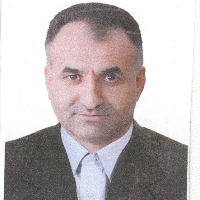Advantages of Setting up Temporary Medical Centers in Response to COVID-19 Pandemic: A Qualitative Study
Temporary medical centers can properly compensate for the shortage of hospitals during biological emergencies. They bolster the capacity of medical centers regarding patient admissions, provide efficient care, and mitigate the progression of critical situations. This study aims to identify the advantages of setting up temporary medical centers in responding to the COVID-19 pandemic.
This qualitative study engaged 25 people involved in managing temporary medical centers during the COVID-19 pandemic. The participants included patients, construction experts, and specialists who equipped and set up temporary medical centers in Tehran City, Iran. All had possessed a history of responding to biological agents. Considering the maximal diversity, the participants were selected based on work experience, age, gender, education level, and managerial background. The inclusion criteria comprised willingness to participate, ability to communicate with the interviewer, and informed consent. The exclusion criterion included the inability to continue the research. The study data were analyzed by MAXQDA-2020 software using the Graneheim and Lundman method. The results were validated against the Guba and Lincoln criteria.
Based on the results, the advantages of temporary medical centers were classified into 8 sub-themes: human-centered care, quick performance and response, helping the health system, preventing the burnout of treatment staff, saving the costs, justice and equality, leveling and providing classified services at various levels, and timely patient transfer.
With specific criteria for accepting patients, temporary medical centers ensure their safety in care, help to break internal transmission, and pay attention to patients’ social and emotional needs. As a rapid response mechanism, they can answer to the current COVID-19 pandemic and other epidemics in future disasters. The result of this study can help manage biological emergencies in the future, as it presents a clear picture of the advantages of temporary treatment centers.
-
Comparing the effectiveness of schema therapy and compassion therapy on self-criticism and stigma in patients with human immunodeficiency virus
Zahra Elmi, Sheyda Sodagar *, Marjan Hossein-Zadeh Taqvaei, Afshin Salahian, Seyyed Javad Hoseini Shokouh
Medical Journal of Mashhad University of Medical Sciences, -
Surfacing and Testing the Strategic Assumptions of Marine Disaster Management Based on a Soft Systems Intervention
*, Seyedeh Samaneh Miresmaeeli, Mrzieyeh Samadi Froshani
Journal of Marine Medicine, -
Investigating effective spatial components in urban warfare based on structural equation modeling
Hasan Rezaei *,
Journal Scientific Research of Strategic Defence Studies, -
Recognizing the Opportunities and Challenges of Marginalizing Women's Resilience Against Disasters, A Narrative Review Study
Simintaj Sharififar, *, Ali Moradi
Journal of Systematic Review in Medical Sciences, -
The Relationship Between Main Blood Groups in Clinical and Paraclinical Findings and Final Outcome of Hospitalized Patients with COVID-19
Mohammad Aminianfar, Behnam Azimi, Saeed Soleiman-Meigooni *, Mohammad Soleimani, Seyyed Javad Hosseini-Shokouh, Siros Faraji, Khodayar Ghorban, Mohammad Darvishi, Maryam Asli
Nurse and Physician Within War, -
Common Triage Errors in Mass Casualty Incidents
, Mohsen Abbasi Farajzadeh, Majid Ghorbanzadeh*
Journal of Marine Medicine,




